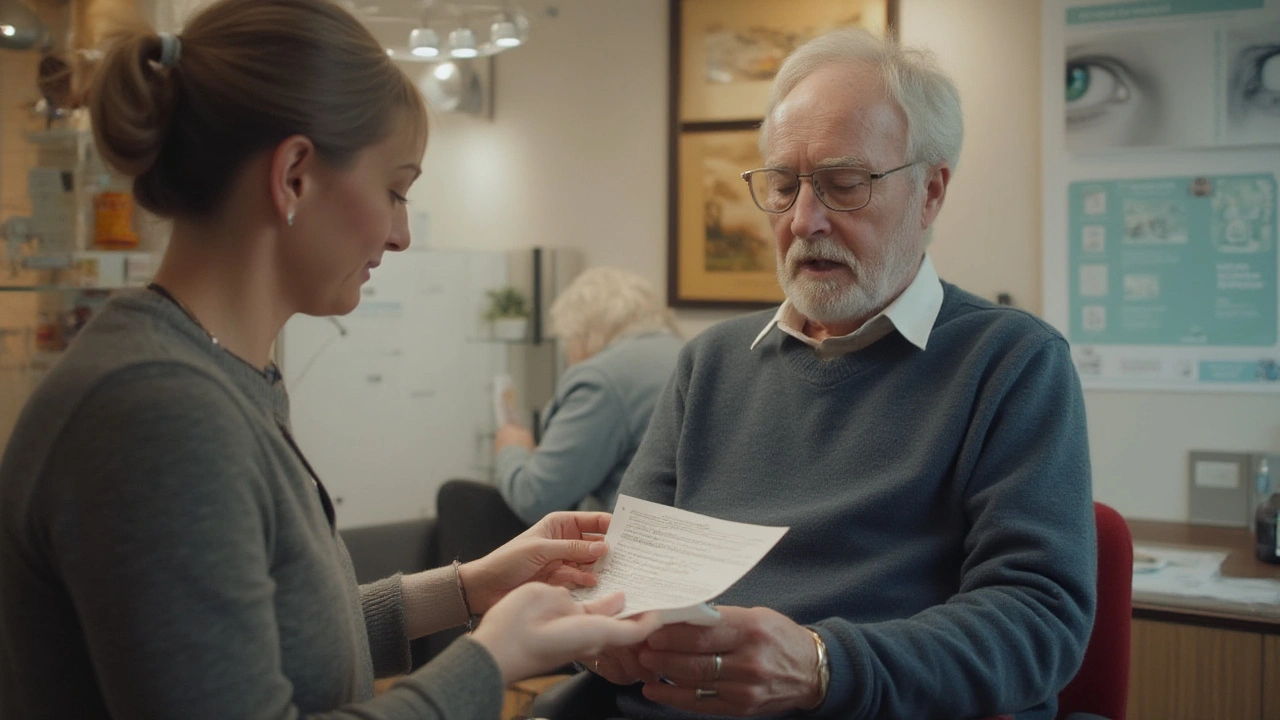Glaucoma Medication: What Actually Works and How to Choose Safely
Glaucoma is no joke when it comes to protecting your vision. If you or someone you care about has just been diagnosed, the thought of losing sight can be scary. The right medication can slow things down so you don’t have to panic every time you visit your eye doctor. But with so many drops, pills, and new options out there, picking the right treatment can feel like a guessing game. Here’s what you actually need to know.
The star of most glaucoma treatment plans is eye drops. The goal is simple—lower eye pressure to prevent nerve damage. Prostaglandin analogs (like latanoprost and bimatoprost) top the list because they’re easy to use and usually work overnight. You just squeeze in a drop every evening. If your doctor wants something different, you might see beta blockers like timolol, or carbonic anhydrase inhibitors, which can come as drops or even pills. Some folks do better on a mix of these, so don’t worry if you’re given more than one. The combo doesn’t mean your glaucoma’s worse—it just means your doctor wants to hit the problem from more than one angle.
Newer meds, like rho kinase inhibitors and preservative-free drops, are shaking things up. These can be lifesavers for people who struggle with eye irritation or allergies, which happens more often than you’d think. Some doctors even recommend switching meds if side effects get annoying. If your eyes are red and gritty all the time, speak up—there’s usually another option.
Price tags and convenience count, too. Generic versions save a bundle and work just as well as fancy brands. Some drops sting a bit, others give you dry eyes, and a few can actually change the color of your iris. Before you freak out over a pink bottle, double check what's inside—most side effects aren’t dangerous, just annoying. If you’re ever unsure, a quick call or message to your doctor is smarter than skipping a dose.
Sticking with the routine makes all the difference. Set alarms, use checklists, or ask someone to help—whatever does the trick so you don’t miss a dose. Even the best medication won’t help if it sits in the medicine cabinet.
Sometimes pills get tossed into the mix, especially if drops aren’t enough. But most people stick with drops because pills can have more side effects, like tiredness or tummy troubles. If surgery is brought up, it usually means meds aren’t hitting the goal—but that doesn’t mean you failed. Chronic diseases like glaucoma change over time; it’s totally normal for the plan to shift.
Ready for the secrets no one tells you? Ask your pharmacist about rebates, prescription programs, or low-cost clinics. People save hundreds this way. Your best bet: stay honest with your doctor about what works and what doesn’t. Don’t just ‘put up with’ side effects because you think that’s your only option. Getting glaucoma under control is about teamwork, and that starts with knowing your choices.
Ophthalmologist Advice: Safe Dosage and Use of Carbonic Anhydrase Inhibitors
Expert advice on safe use of carbonic anhydrase inhibitors for eye care, including dosing, interactions, follow-up steps, and side effect management tips.
